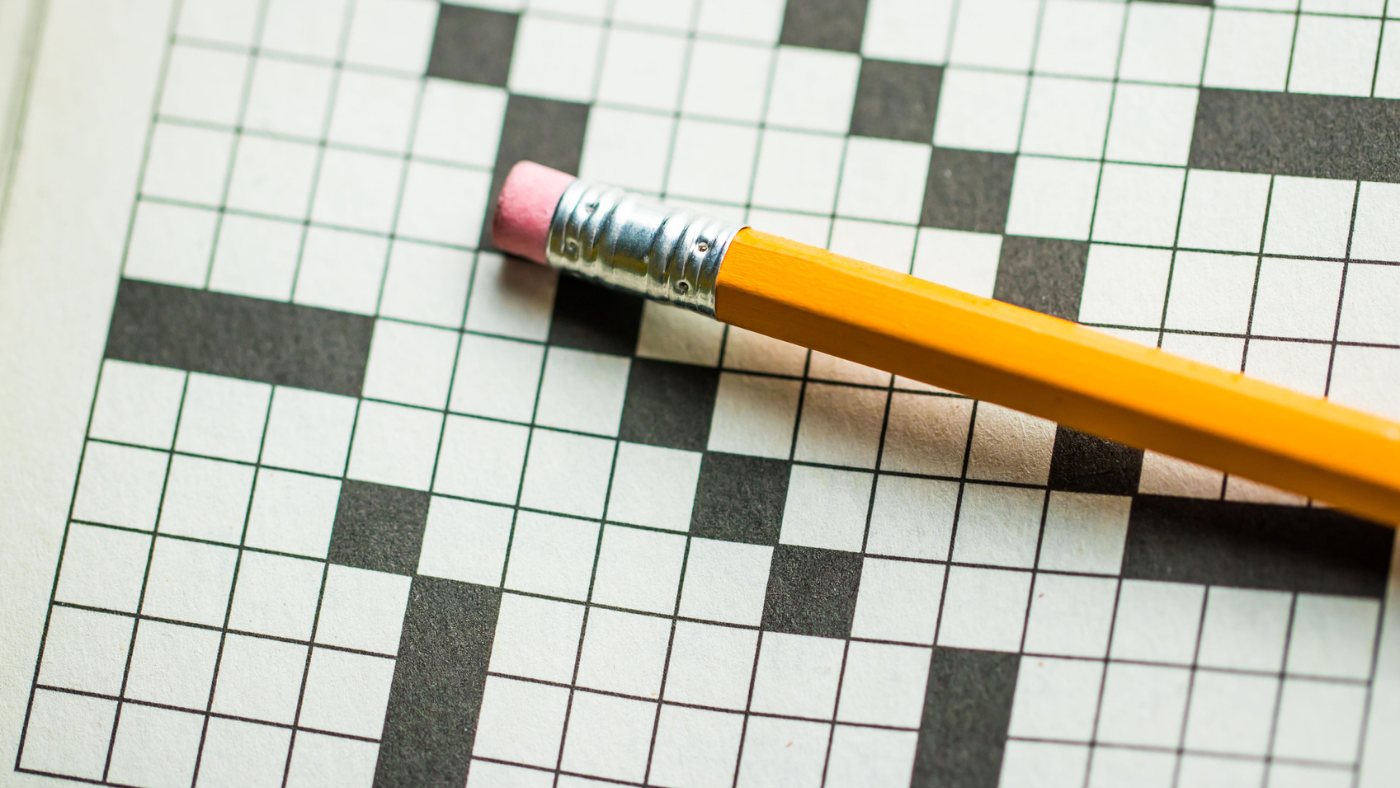Is international justice doomed?
A look at the crippled International Criminal Court

Russia just announced it's joining South Africa in withdrawing from the ICC. Is international justice doomed? Here's everything you need to know:
What is the ICC?
It's the one place in the world where genocide can be prosecuted. Headquartered in The Hague, Netherlands, the International Criminal Court weighs evidence of the worst crimes on the planet: crimes against humanity, including genocide and systematic torture. The ICC is a court of last resort to bring the world's monsters to justice, and it hears a case only if the state where the atrocity occurred is unable or unwilling to convene a fair trial — either because a conflict has decimated the justice system or because the accused is in power. There is no jury; instead, a panel of judges decides each case. Over 14 years, just four people have been convicted: three Congolese warlords and one Malian extremist.
Subscribe to The Week
Escape your echo chamber. Get the facts behind the news, plus analysis from multiple perspectives.

Sign up for The Week's Free Newsletters
From our morning news briefing to a weekly Good News Newsletter, get the best of The Week delivered directly to your inbox.
From our morning news briefing to a weekly Good News Newsletter, get the best of The Week delivered directly to your inbox.
How did it come to be?
The court began operating in 2002, but its roots go back to the end of World War II. After the Nazi concentration camps were liberated and the Allies held war-crimes trials in Nuremberg and Japan, international leaders began discussing ways to ensure that such hideous crimes could not happen again. In 1948, the newly formed United Nations adopted the Genocide Convention and the year after that the Geneva Conventions, which lay out wartime rules for the treatment of wounded soldiers, prisoners of war, and civilians. But there was no court that could prosecute offenders, and many atrocities went unpunished. Then, in the 1990s, two horrifying events rekindled calls for an international court: the Yugoslav civil wars, which brought concentration camps back to Europe, and the Rwandan genocide, in which 800,000 people were slaughtered in just 100 days. An appalled U.N. set up special tribunals to try war crimes for both those conflicts, and the Rome Statute, the treaty that created the court, was signed in 1998. From the beginning, though, the court suffered a crisis of legitimacy.
What hampered it?
At its inception, the court was seen as a godsend for Africa. "Our own continent has suffered enough horrors emanating from the inhumanity of human beings towards human beings," said Nelson Mandela when he signed the treaty. "Many of these might not have occurred, or at least been minimized, had there been an effectively functioning International Criminal Court." But the largest world powers, including the U.S., did not join. The Clinton administration signed the treaty, but by the time it came into force in 2002 with 60 ratifications, the Bush administration decided to unsign it, saying it could put U.S. soldiers at risk of prosecution. Russia signed but did not ratify, and China and India didn't sign at all. Most of Africa, South America, and Europe did join, but after a few years many African countries said the court was biased against Africans.
Is that charge true?
Of the 39 people who have been indicted, all are Africans, including Sudanese President Omar al-Bashir, former Ivorian President Laurent Gbagbo, and Kenyan President Uhuru Kenyatta (see below). But that alone isn't evidence of bias: Most of the cases were referred to the court by African governments themselves. The current prosecutor, Fatou Bensouda of Gambia, points out that the victims of the crimes for which indictees are being prosecuted have also been Africans — people with no hope of getting justice in their own countries. Bensouda was appointed in 2012 expressly to combat the ICC's image as anti-African, and she has opened preliminary investigations into possible war crimes in Georgia, Afghanistan, Colombia, Iraq, Palestine, and Ukraine. But Africans are not appeased. Sheriff Bojang, Gambia's information minister, calls the ICC a "court for the persecution and humiliation of people of color."
Who has quit the ICC?
South Africa was first, last month. Its government ignored the ICC indictment and failed to arrest Sudan's Bashir when he visited South Africa for a regional conference this year. South Africa says it can't fulfill its role as the continent's peace broker if it's expected to arrest the warring leaders. Gambia and Burundi followed, and Kenya and other African states may, too. Earlier this month, Russia withdrew from the court altogether after the ICC issued a report calling the annexation of Crimea an occupation. Russia's exit is symbolic, since Russia never ratified the treaty, but Cambridge University law professor Sarah Nouwen says every withdrawal hurts. "The smaller the court's jurisdiction, the more selective it will be seen as operating."
Will the court survive?
In diminished form, perhaps, but the court is headed for even greater opposition in the coming months. The ICC is about to open an official investigation into possible war crimes committed in Afghanistan from 2002 to 2005 — some by the Taliban but others by U.S. forces. Charges against Americans are unlikely, as the prosecutor would have to show that the U.S. failed to address allegations of torture through its own justice system. But the mere existence of an investigation is likely to harden U.S. opposition to the court. President-elect Donald Trump has already said he wants to bring back waterboarding "and go tougher" in terrorism interrogations, so cooperation between a Trump administration and the ICC is all but ruled out.
Kenyatta's ill-fated indictment
The indictment of Kenyan President Uhuru Kenyatta was a turning point for African objections to the court. It was the first time the ICC decided to prosecute a case on its own volition, without being referred by a member state or the U.N., and many Africans saw it as unwarranted meddling. Prosecutors indicted Kenyatta, his rival, William Ruto, and several others for inciting revenge killings after the disputed 2007 election. But evidence was hard to come by — partly because of Kenyan government obstruction and witness intimidation. Kenyatta and Ruto then joined political forces to become president and vice president, campaigning and winning the 2013 election while under indictment for crimes against humanity. After that rebuke of the court by Kenyan voters, the ICC dropped the charges. One ICC official told Reuters that Africa's rejection of the court's authority "was bound to happen when dictators decide to run for cover."
A free daily email with the biggest news stories of the day – and the best features from TheWeek.com
-
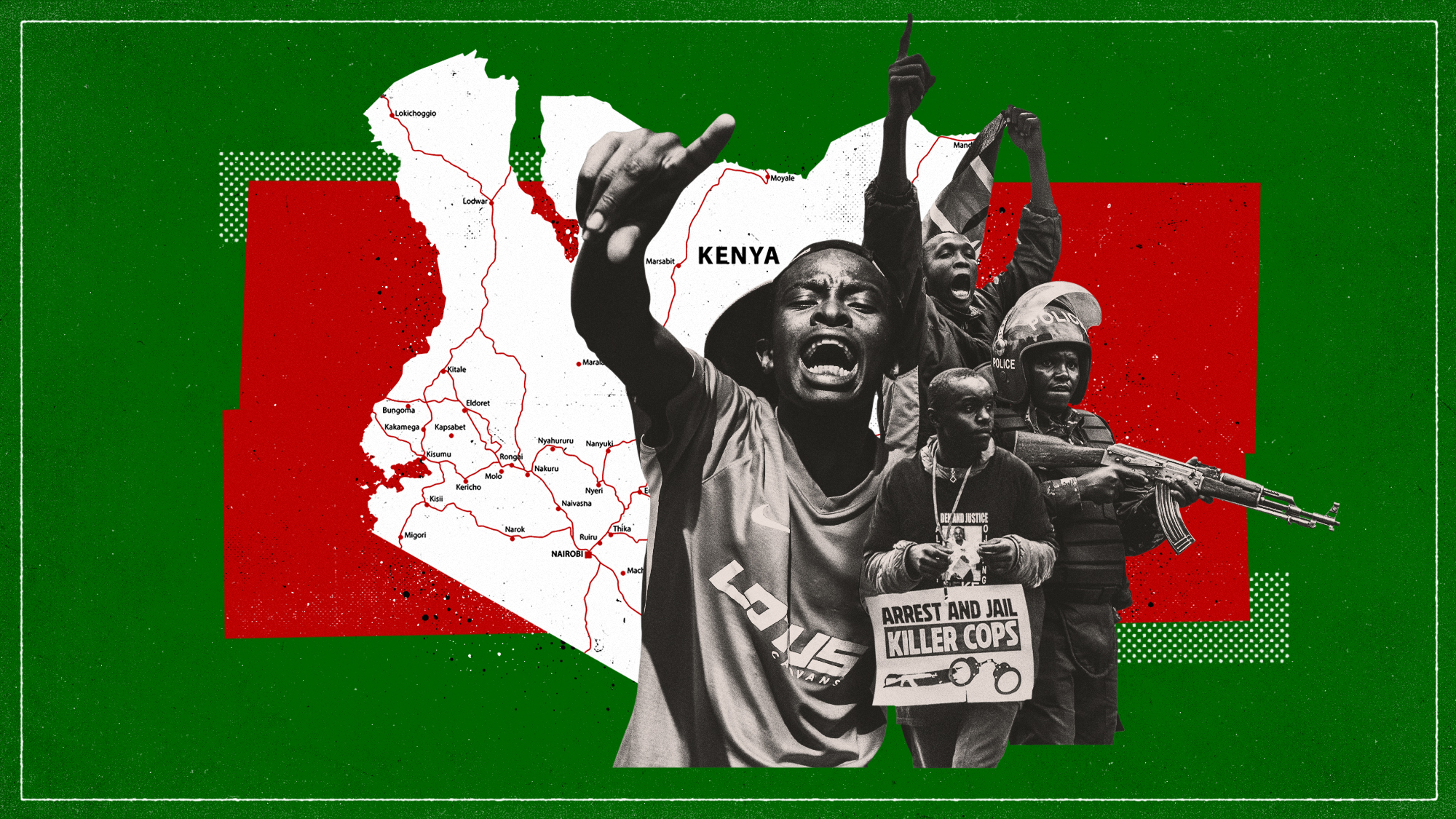 One year after mass protests, why are Kenyans taking to the streets again?
One year after mass protests, why are Kenyans taking to the streets again?today's big question More than 60 protesters died during demonstrations in 2024
-
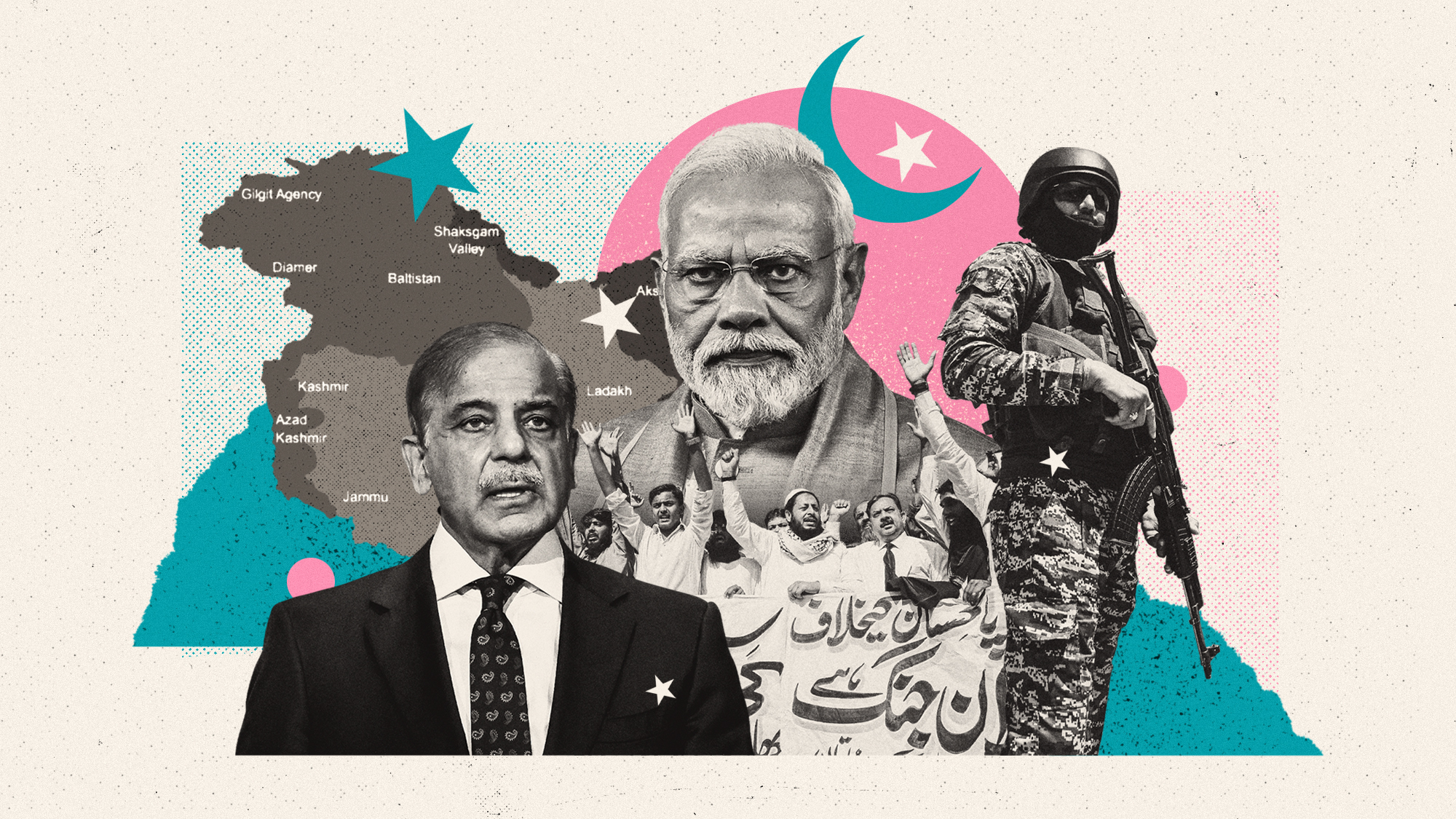 What happens if tensions between India and Pakistan boil over?
What happens if tensions between India and Pakistan boil over?TODAY'S BIG QUESTION As the two nuclear-armed neighbors rattle their sabers in the wake of a terrorist attack on the contested Kashmir region, experts worry that the worst might be yet to come
-
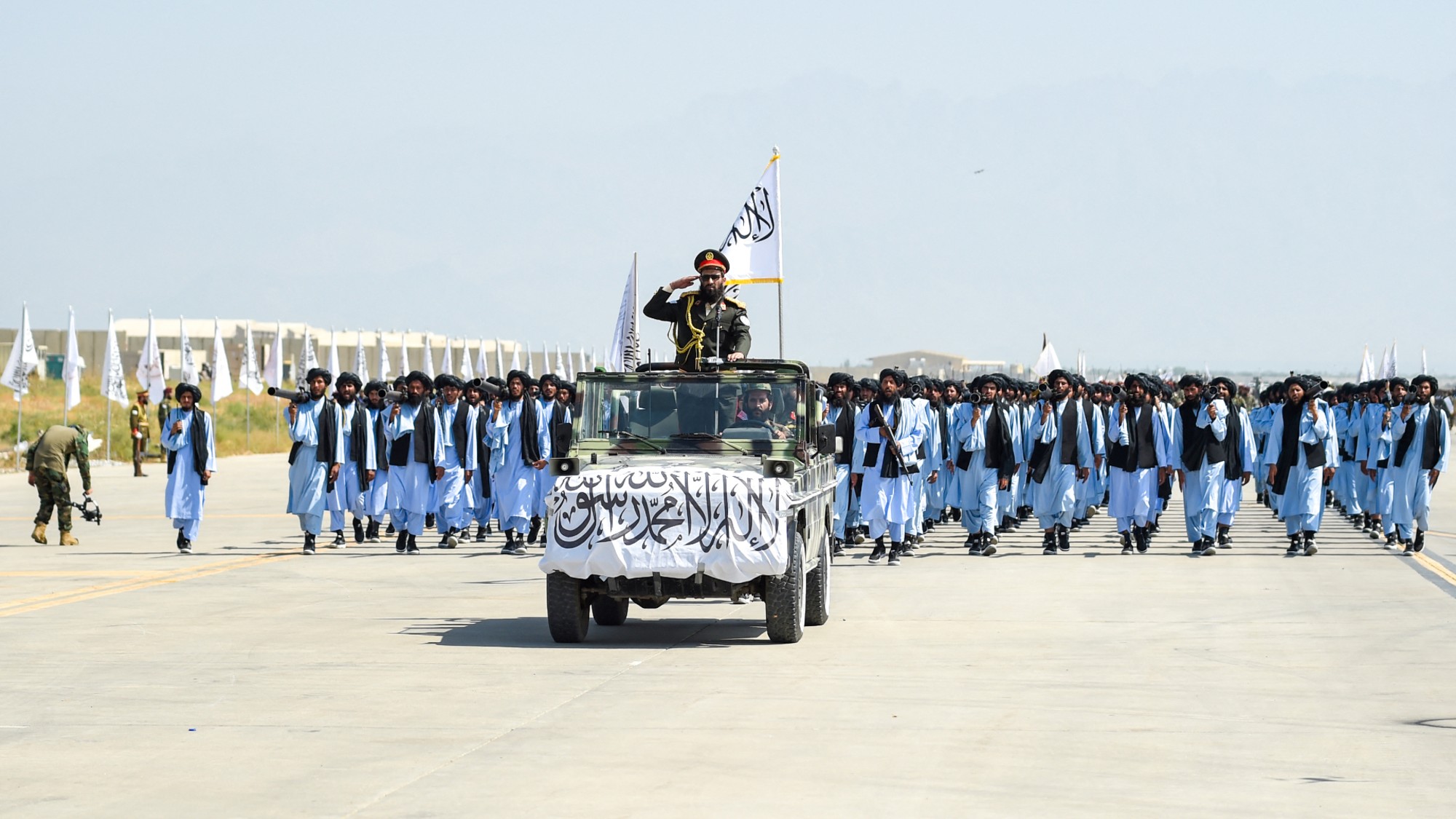 Why Russia removed the Taliban's terrorist designation
Why Russia removed the Taliban's terrorist designationThe Explainer Russia had designated the Taliban as a terrorist group over 20 years ago
-
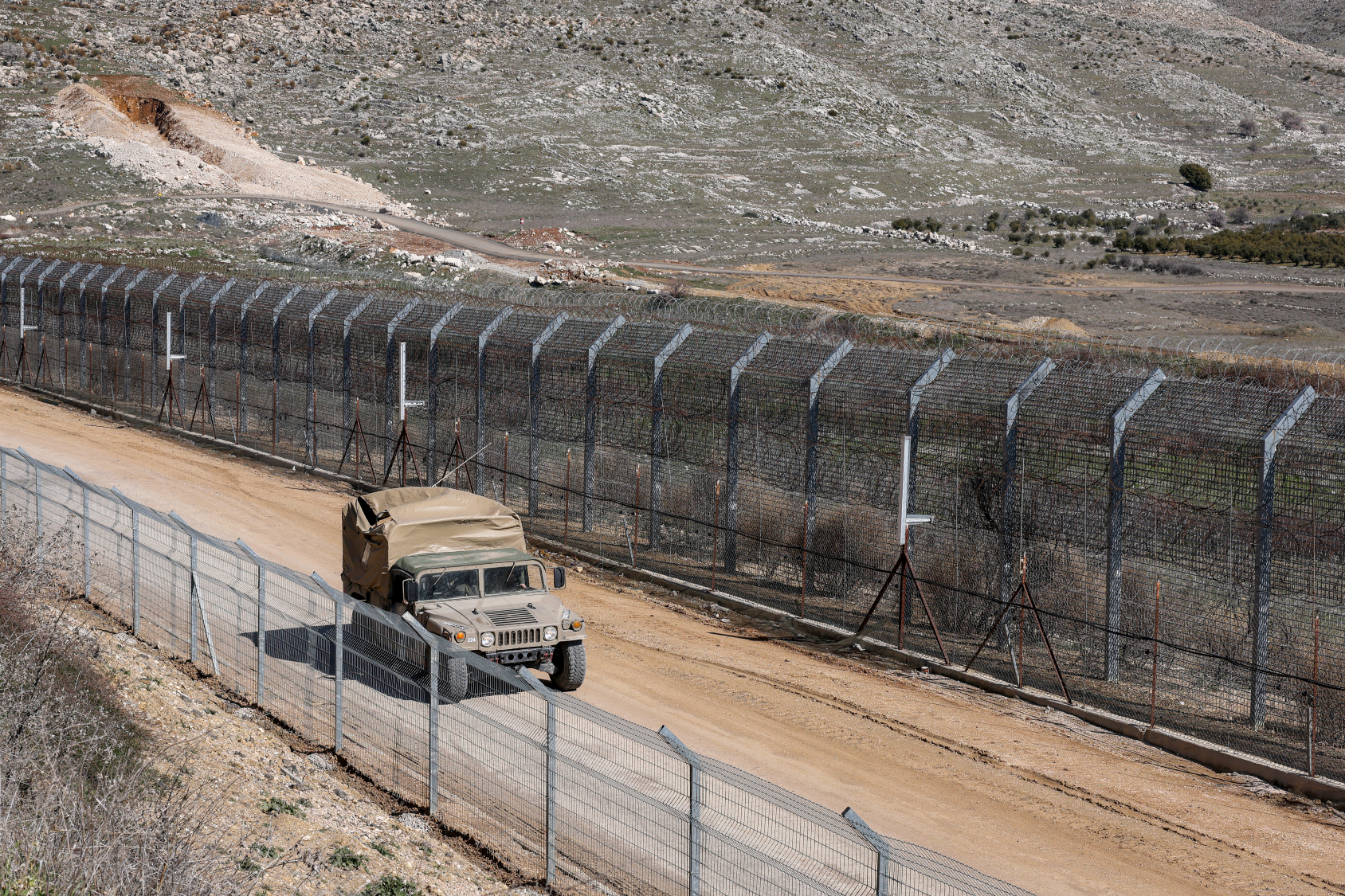 Inside the Israel-Turkey geopolitical dance across Syria
Inside the Israel-Turkey geopolitical dance across SyriaTHE EXPLAINER As Syria struggles in the wake of the Assad regime's collapse, its neighbors are carefully coordinating to avoid potential military confrontations
-
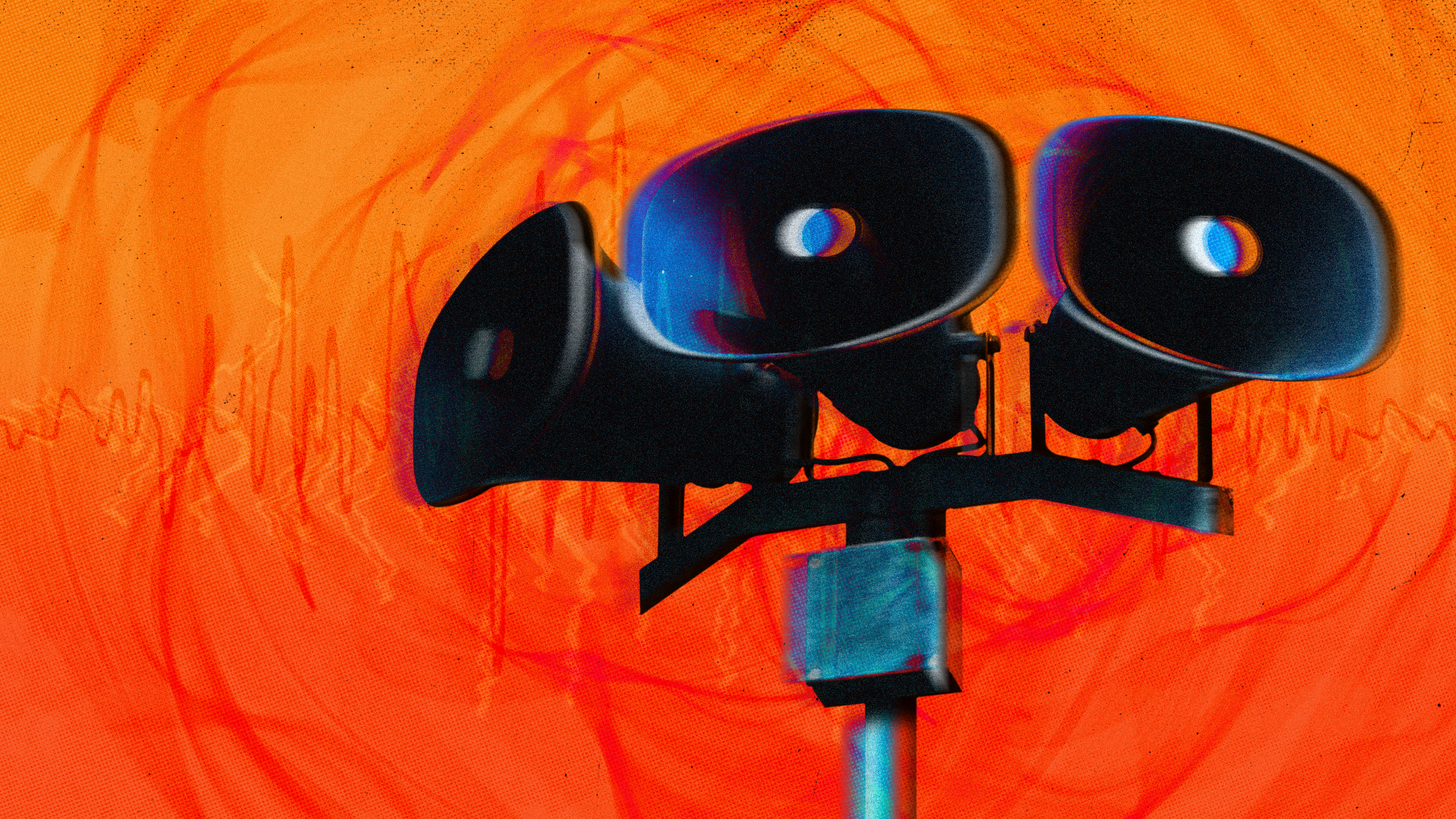 'Like a sound from hell': Serbia and sonic weapons
'Like a sound from hell': Serbia and sonic weaponsThe Explainer Half a million people sign petition alleging Serbian police used an illegal 'sound cannon' to disrupt anti-government protests
-
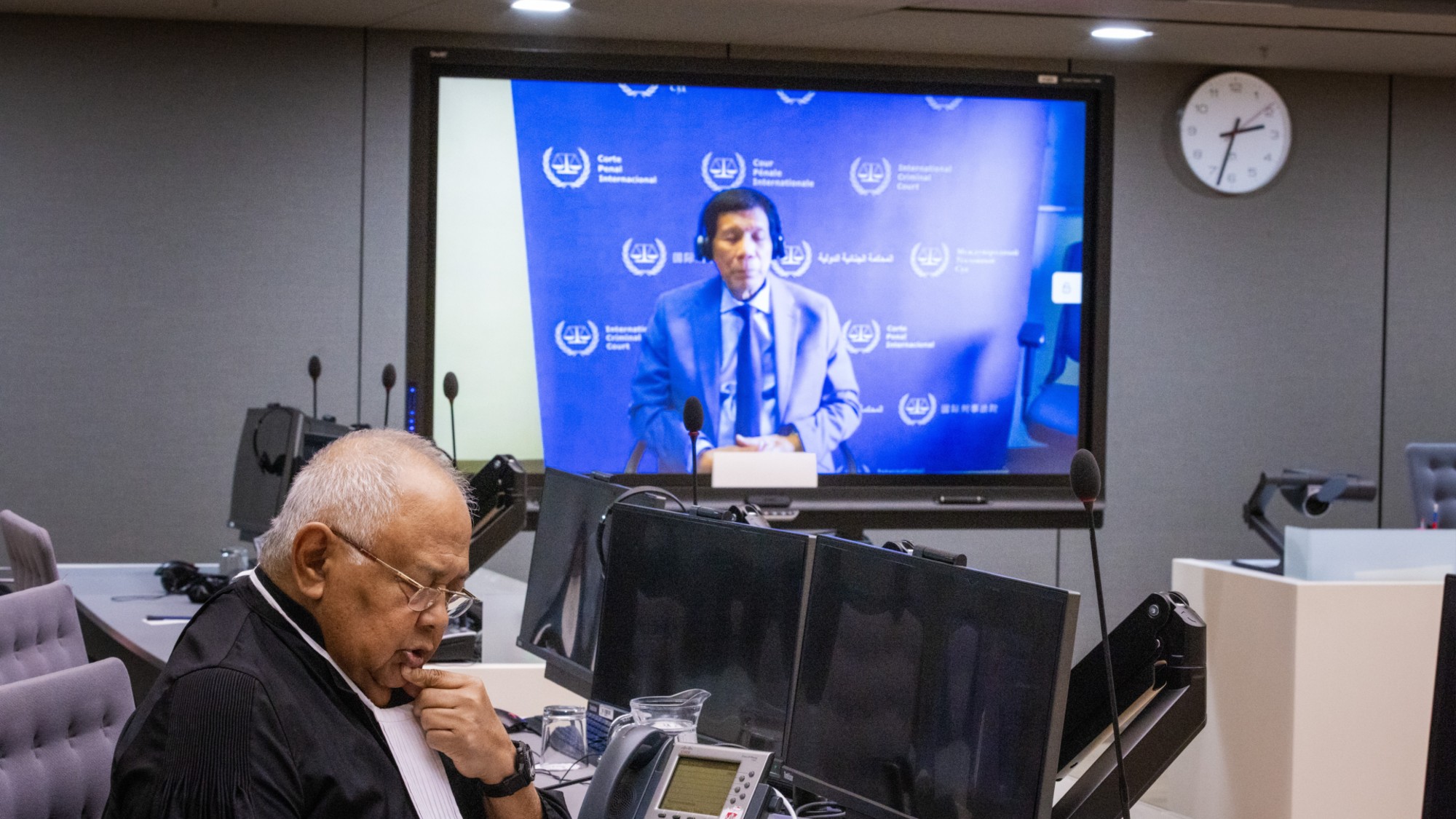 The arrest of the Philippines' former president leaves the country's drug war in disarray
The arrest of the Philippines' former president leaves the country's drug war in disarrayIn the Spotlight Rodrigo Duterte was arrested by the ICC earlier this month
-
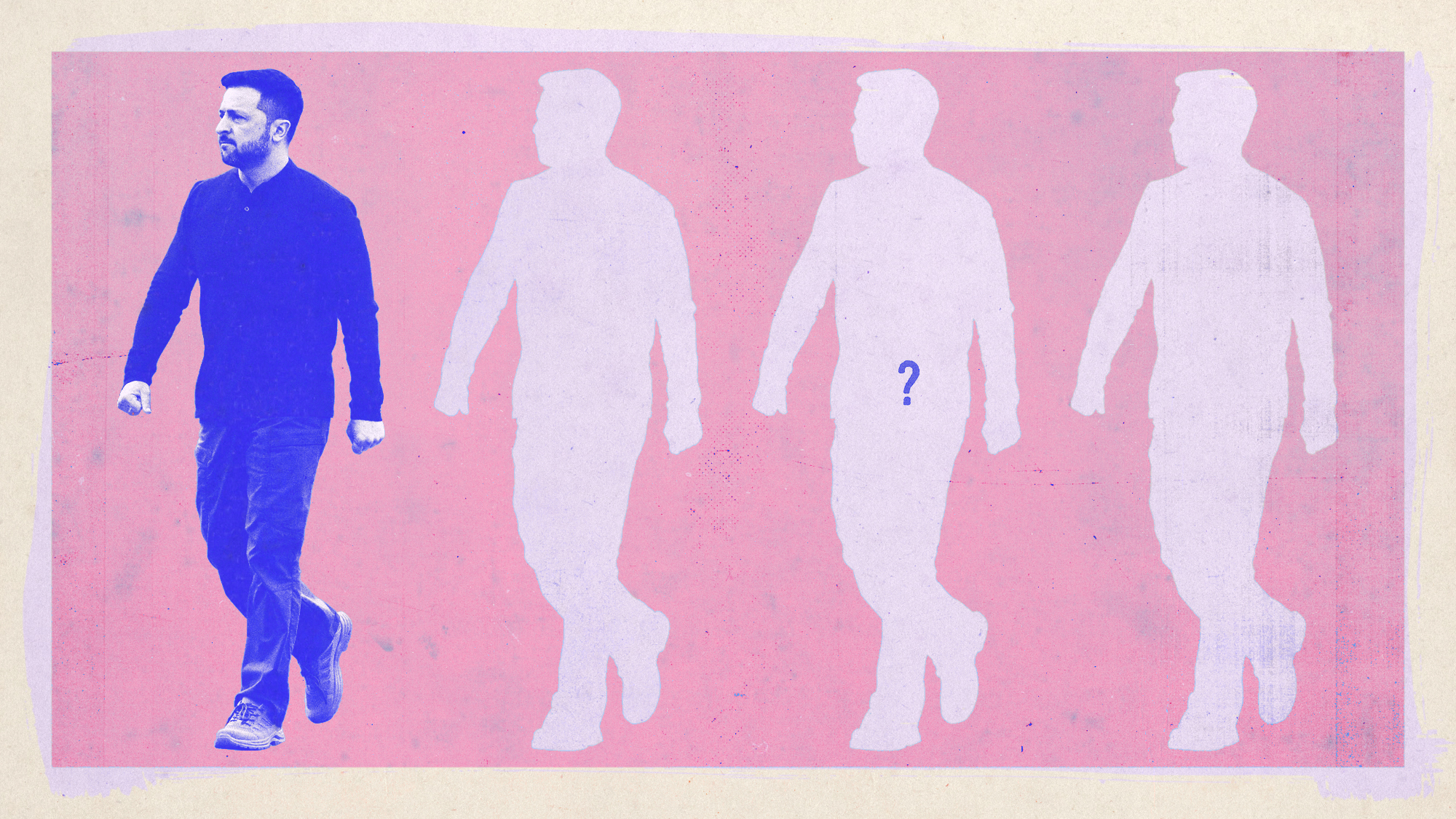 Ukrainian election: who could replace Zelenskyy?
Ukrainian election: who could replace Zelenskyy?The Explainer Donald Trump's 'dictator' jibe raises pressure on Ukraine to the polls while the country is under martial law
-
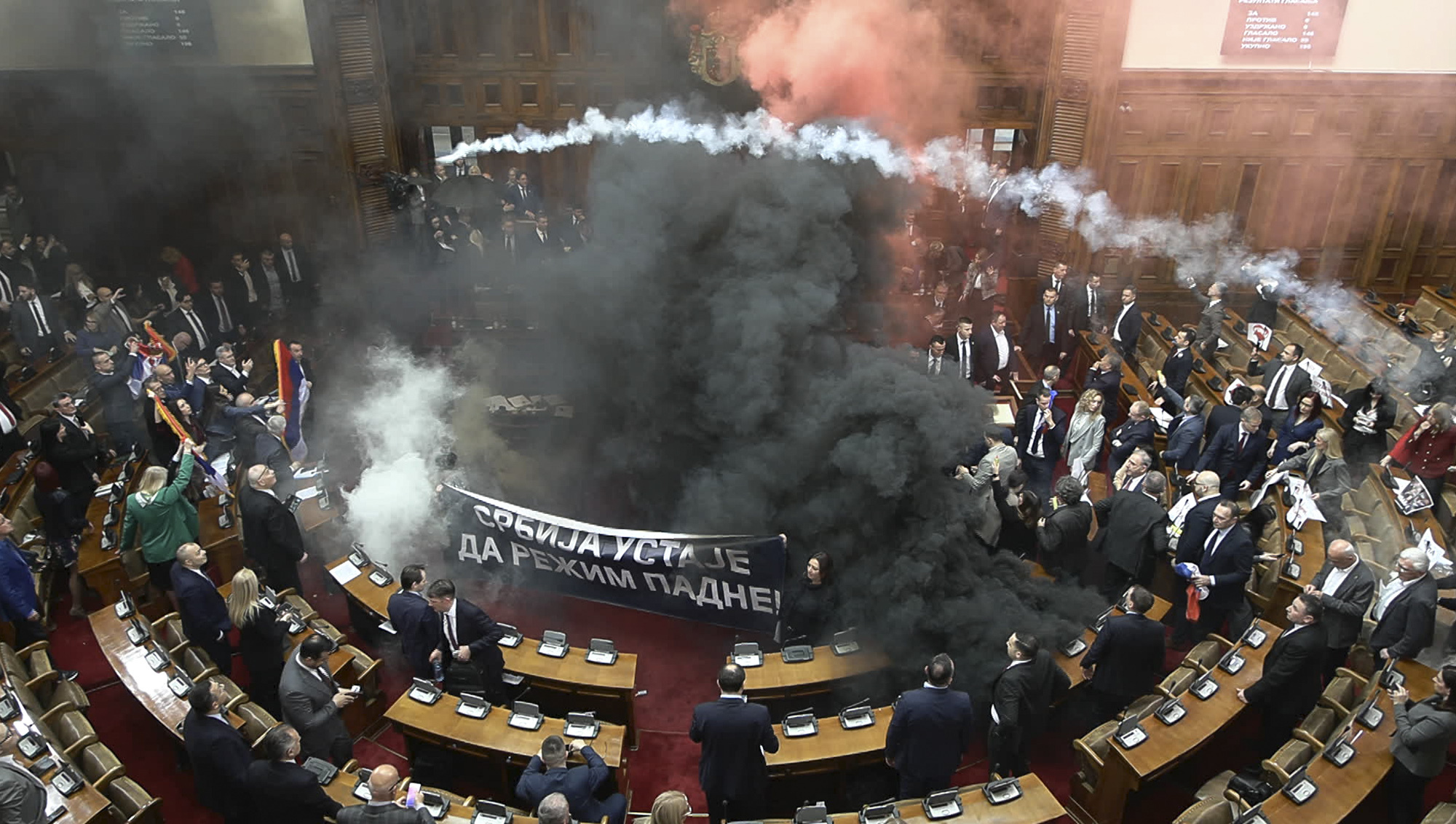 Why Serbian protesters set off smoke bombs in parliament
Why Serbian protesters set off smoke bombs in parliamentTHE EXPLAINER Ongoing anti-corruption protests erupted into full view this week as Serbian protesters threw the country's legislature into chaos


